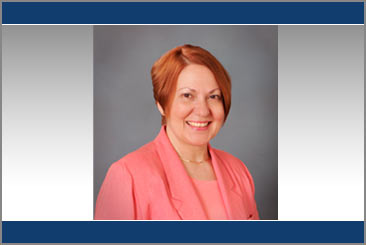|
|
| The best laid plans |
| By Ann Coppola, News Reporter |
| Published: 07/28/2008 |
 When Jane Browning began her career as a developmental disabilities advocate in Denver, Colorado, she couldn’t have imagined she would one day be a part of criminal justice legislative history. The same goes for Jane O’Shaughnessy; the former St. Louis juvenile probation officer had no idea she’d soon be transforming correctional operations throughout the United States. Whether it was the original plan or not, these unlikely career paths have helped create two turning points in corrections history, one past and one present.
When Jane Browning began her career as a developmental disabilities advocate in Denver, Colorado, she couldn’t have imagined she would one day be a part of criminal justice legislative history. The same goes for Jane O’Shaughnessy; the former St. Louis juvenile probation officer had no idea she’d soon be transforming correctional operations throughout the United States. Whether it was the original plan or not, these unlikely career paths have helped create two turning points in corrections history, one past and one present.Browning got her start as a mentor with The Arc of the United States, an organization committed to the welfare of children and adults with learning disabilities. Even though she had no intention of entering the criminal justice field, Browning couldn’t help but gravitate towards that arena. “From the get-go, I saw the crossover between populations of people with disabilities and offenders,” Browning says, “and it really becomes deep water when you look at individuals with learning disabilities.” Browning went from The Arc to the White House, where during the Clinton administration she became executive director of the President’s Committee on Mental Retardation, now the President’s Committee for People with Intellectual Disabilities. When Browning left her government position to become executive director of the Learning Disabilities Association of America, her career was full-on thrust into the criminal justice spotlight. “Folks with disabilities are an extremely vulnerable population inside and outside of prison,” she explains. “People with disabilities also represent a higher percentage of victims of crime. Especially the proportion of women with disabilities subjected to assault, it is way over the national average.” Browning’s passion for improving the lives of the developmentally disabled led her to her current job as executive director of the International Community Corrections Association (ICCA). The organization supports community-based corrections programs throughout the country with research, training, and advocacy. ICCA’s work contributed to the recent passage of the Second Chance Act. “I have never watched one piece of legislation so closely,” says Browning, who personally lobbied on behalf of the bill. “We’d go up to Capitol Hill in groups of three to five to visit different representatives. We’d get them to sign on as cosponsors and encourage colleagues to support it as well. It took us five years.”  Browning
BrowningThe Second Chance Act, signed into law last April, expands services to offenders and their families for reentry into society. It is designed to make the journey out of prison for newly released prisoners a one-way street by improving services for transitional housing, mentoring, and job training and placement. “The biggest difference that the Second Chance Act has already made is in the attitudes of the people in Congress,” Browning adds. “To get our politicians to come around to understand the importance of rehabilitation and how it promotes public safety has been a tremendous achievement. We’re not coddling criminals. We’re preventing future victimization, as opposed to locking people up and throwing away the key.” That psychological shift is especially clear with a presidential election nearly 100 days away. Republican presidential candidate, John McCain, for example, is pledging to support the law, recently telling an audience at the National Sheriffs’ Association that ex-convicts need more than a few bucks and a bus ticket out of town. Browning is determined to make sure such pledges are more than vote-grabbing rhetoric. “We’re now moving onto the next steps to improve the focus on prisoner reentry,” she says. “Second Chance is already starting to have a second wave around the country, including actions to eliminate barriers to employment for ex-offenders.” Despite the hard work, she says, “to be part of getting a bill like this passed is truly incredible.” Jane O’Shaughnessy also knows what it’s like to be part of history-making change. The current president of ICCA started out as a juvenile probation officer in St. Louis, Missouri, before heading a pre-release center in St. Louis. In the 1970s, O’Shaughnessy was asked to join the Commission on Accreditation for Corrections (CAC), just a fledgling organization at the time. Her time with the commission turned out to be a groundbreaking ten years for corrections in the United States. “We created the first version of national standards for adult and juvenile corrections and the accreditation process began,” O’Shaughnessy says. “It was a great time to be a part of something that was innovative and making a huge difference. That’s what I like best: to be part of something new and different.” Today, CAC is a private, nonprofit group of 28 corrections professionals from across the country. It conducts hearings to determine if an agency will become accredited, which can help assess strengths and weaknesses, and implement state-of-the-art policies and procedures. “But at that time,” Browning says, “accreditation didn’t exist at all. We had to visit accrediting bodies in other industries and recruit experts from all over the country.” One thing that continues to impress Browning is the fact that the CAC has always been a place with many opportunities for women. “People think, ‘Oh it’s the 1970s and its corrections, it must have been the dark ages,’ but it really was not,” Browning explains. “There were a number of women on the commission. At the time there weren’t any directors of departments of correction who were women, so they reached out to female wardens and a very diverse group of women. I thought that the corrections family was really willing to bring more women on board, especially the leadership.” O’Shaughnessy moved on from the CAC to the parole board in Denver, Colorado. Today, in addition to her work at the ICCA, she is Chairman of the Board of Cornerstone Programs, one of the first privately owned juvenile companies in the country. “Corrections is not a career you think of when you’re 12, but when the opportunity presents itself you take it,” she says. “I think careers are most satisfying when your personal values and skill sets match your job. The [CAC] really gave me that combination of innovation and organization building.” O’Shaughnessy and Browning have helped turn the tides when change was needed most, always guided by a need to make a difference, which seemed so far to be the best part of their unplanned plan. Related Resources: More on the Second Chance Act Quick facts on accreditation |
MARKETPLACE search vendors | advanced search

IN CASE YOU MISSED IT
|


Comments:
No comments have been posted for this article.
Login to let us know what you think